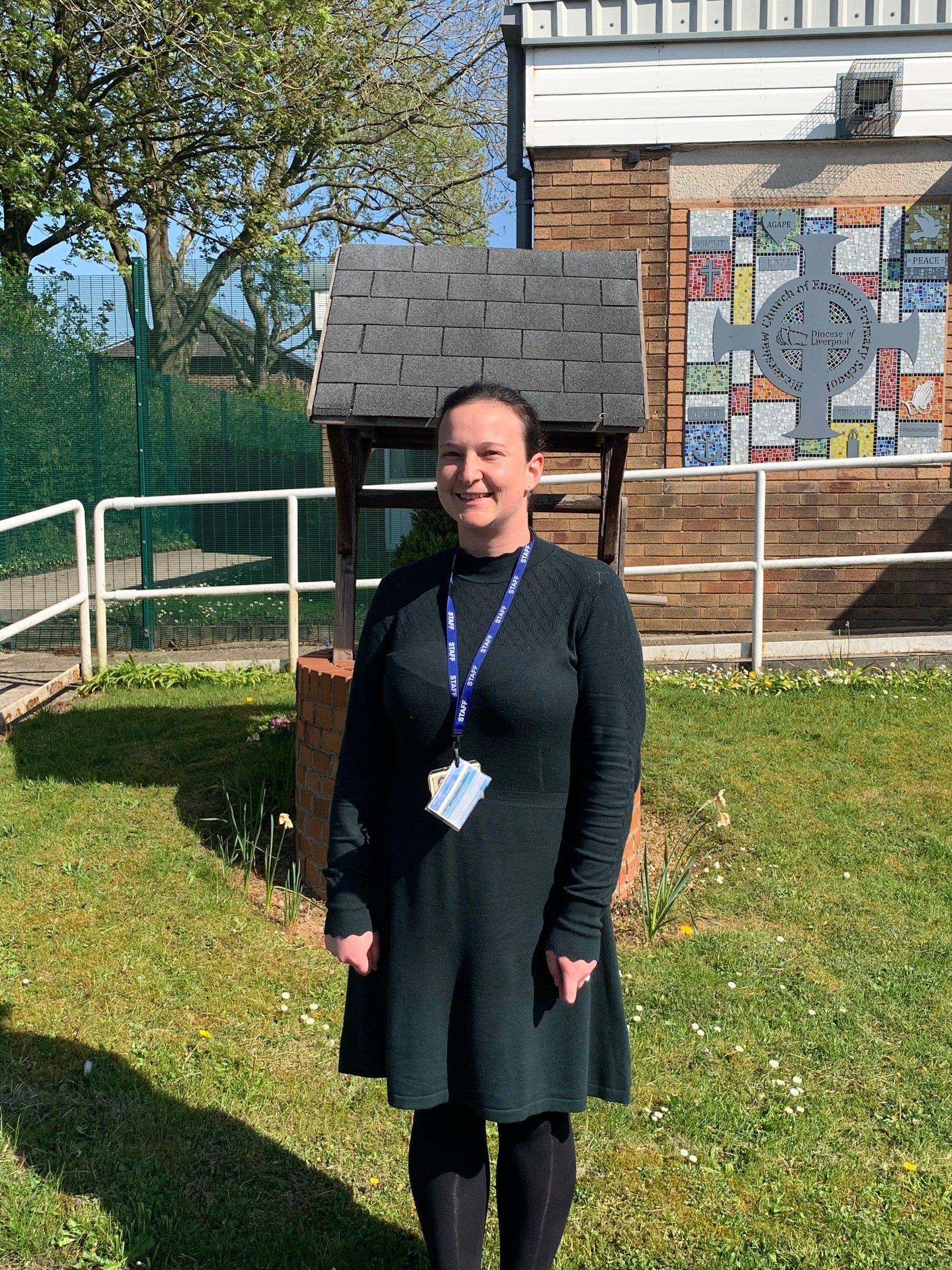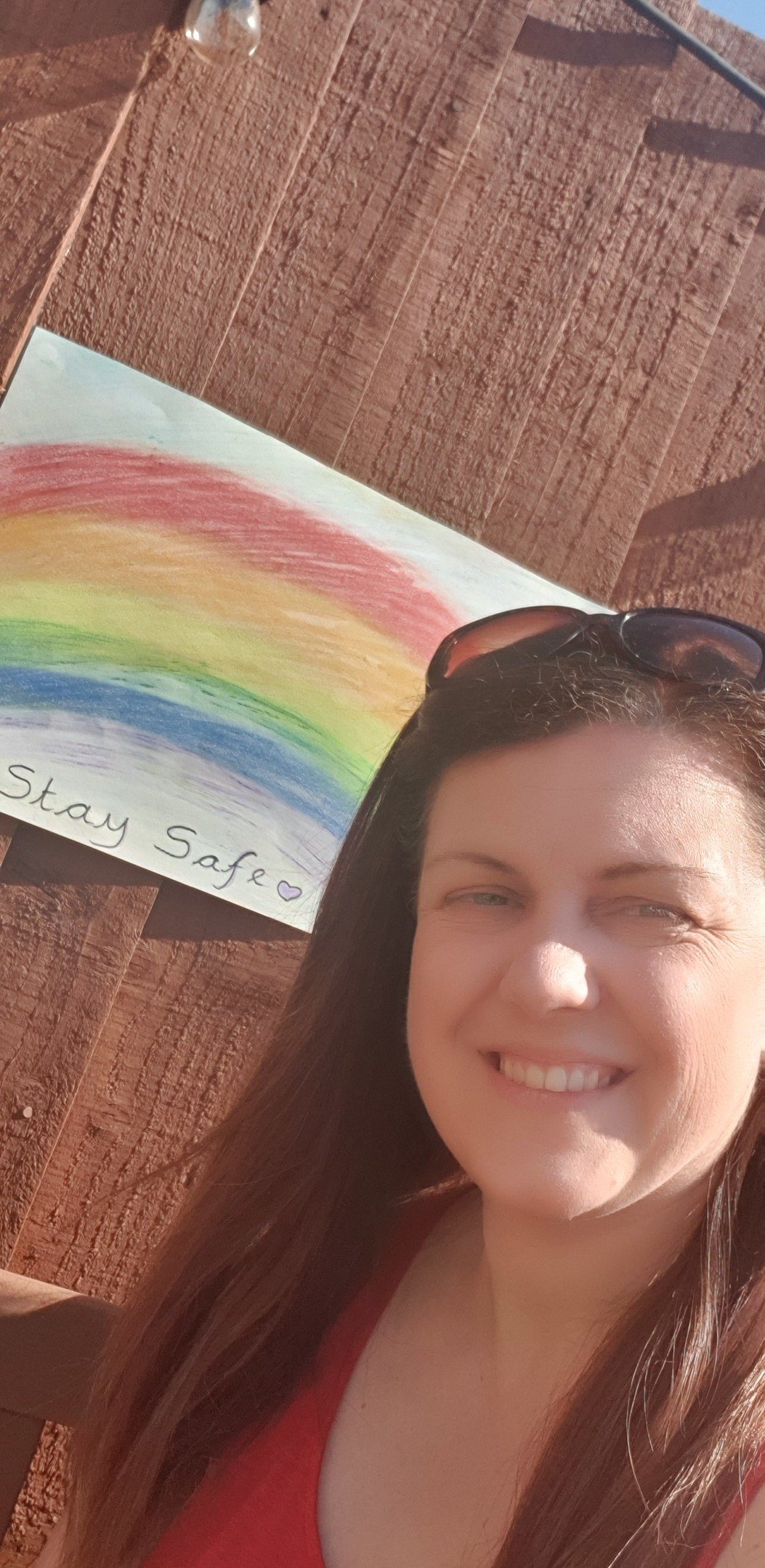Early Years
Welcome to Our School
Meet the Team
|
Headteacher Miss A. Taberner |
||
|
Early Years Foundation Stage lead Mrs S. Waltho-Chase |
||
|
Reception Class Teacher Mrs L. Haselden
|
||
|
|
HLTA Miss S. Grosvenor |
|
|
Teaching Assistant Mrs E. Fisher |
|
Look at how much fun we have learning through play in the Early Years
Our overarching aim of Early Years Education at Bickershaw Church of England Primary School is to promote the children’s natural curiosity to have the confidence to ask questions and navigate their own learning.
Our Early Years curriculum will be underpinned by the drivers of heritage, initiative and possibilities.
- Heritage The development of strong relationships are the foundation to our learning, as we develop a deeper understanding of our backgrounds and celebrating uniqueness. We achieve this through sharing information “All About Me” and a visit from a baby who helps us to see what our life used to be like, and how we have grown.
- Initiative Play is a key way in which we learn. Our learning environment stimulates curiosity, providing opportunities for us to explore and make sense of the world around us. We are supported to communicate our thoughts and ideas and explore new meaning and navigating own learning journey.
- Possibility Experiences help us to gain an insight into what our future could be like. Through our visit to the farm, or the special visitors we have in school, we are inspired to think about what we would like to be when we grow up.
Welcome
A big warm welcome to Bickershaw Church of England Primary School. In Reception we follow the 'Early Years Foundation Stage' curriculum. This carefully planned, play based curriculum ensures that we learn skills and acquire new knowledge through 7 areas of learning and development. These 7 areas are:
-
Communication and language development:
The development of children’s spoken language underpins all seven areas of learning and development. Children’s back-and-forth interactions from an early age form the foundations for language and cognitive development. The number and quality of the conversations they have with adults and peers throughout the day in a language-rich environment is crucial. By commenting on what children are interested in or doing, and echoing back what they say with new vocabulary added, practitioners will build children's language effectively. Reading frequently to children, and engaging them actively in stories, non-fiction, rhymes and poems, and then providing them with extensive opportunities to use and embed new words in a range of contexts, will give children the opportunity to thrive. Through conversation, story-telling and role play, where children share their ideas with support and modelling from their teacher, and sensitive questioning that invites them to elaborate, children become comfortable using a rich range of vocabulary and language structures. -
Physical development:
Physical activity is vital in children’s all-round development, enabling them to pursue happy, healthy and active lives. Gross and fine motor experiences develop incrementally throughout early childhood, starting with sensory explorations and the development of a child’s strength, co-ordination and positional awareness through tummy time, crawling and play movement with both objects and adults. By creating games and providing opportunities for play both indoors and outdoors, adults can support children to develop their core strength, stability, balance, spatial awareness, co-ordination and agility. Gross motor skills provide the foundation for developing healthy bodies and social and emotional well-being. Fine motor control and precision helps with hand-eye co-ordination, which is later linked to early literacy. Repeated and varied opportunities to explore and play with small world activities, puzzles, arts and crafts and the practice of using small tools, with feedback and support from adults, allow children to develop proficiency, control and confidence.
-
Personal, social and emotional development:
Children’s personal, social and emotional development (PSED) is crucial for children to lead healthy and happy lives, and is fundamental to their cognitive development. Underpinning their personal development are the important attachments that shape their social world. Strong, warm and supportive relationships with adults enable children to learn how to understand their own feelings and those of others. Children should be supported to manage emotions, develop a positive sense of self, set themselves simple goals, have confidence in their own abilities, to persist and wait for what they want and direct attention as necessary. Through adult modelling and guidance, they will learn how to look after their bodies, including healthy eating, and manage personal needs independently. Through supported interaction with other children, they learn how to make good friendships, co-operate and resolve conflicts peaceably. These attributes will provide a secure platform from which children can achieve at school and in later life.
-
Literacy:
It is crucial for children to develop a life-long love of reading. Reading consists of two dimensions: language comprehension and word reading. Language comprehension (necessary for both reading and writing) starts from birth. It only develops when adults talk with children about the world around them and the books (stories and non-fiction) they read with them, and enjoy rhymes, poems and songs together. Skilled word reading, taught later, involves both the speedy working out of the pronunciation of unfamiliar printed words (decoding) and the speedy recognition of familiar printed words. Writing involves transcription (spelling and handwriting) and composition (articulating ideas and structuring them in speech, before writing).
-
Mathematics:
Developing a strong grounding in number is essential so that all children develop the necessary building blocks to excel mathematically. Children should be able to count confidently, develop a deep understanding of the numbers to 10, the relationships between them and the patterns within those numbers. By providing frequent and varied opportunities to build and apply this understanding - such as using manipulatives, including small pebbles and tens frames for organising counting - children will develop a secure base of knowledge and vocabulary from which mastery of mathematics is built. In addition, it is important that the curriculum includes rich opportunities for children to develop their spatial reasoning skills across all areas of mathematics including shape, space and measures. It is important that children develop positive attitudes and interests in mathematics, look for patterns and relationships, spot connections, ‘have a go’, talk to adults and peers about what they notice and not be afraid to make mistakes.
-
Understanding the world:
Understanding the world involves guiding children to make sense of their physical world and their community. The frequency and range of children’s personal experiences increases their knowledge and sense of the world around them – from visiting parks, libraries and museums to meeting important members of society such as police officers, nurses and firefighters. In addition, listening to a broad selection of stories, non-fiction, rhymes and poems will foster their understanding of our culturally, socially, technologically and ecologically diverse world. As well as building important knowledge, this extends their familiarity with words that support understanding across domains. Enriching and widening children’s vocabulary will support later reading comprehension.
-
Expressive arts and design:
The development of children’s artistic and cultural awareness supports their imagination and creativity. It is important that children have regular opportunities to engage with the arts, enabling them to explore and play with a wide range of media and materials. The quality and variety of what children see, hear and participate in is crucial for developing their understanding, self-expression, vocabulary and ability to communicate through the arts. The frequency, repetition and depth of their experiences are fundamental to their progress in interpreting and appreciating what they hear, respond to and observe.
Our teacher ensures that our activities are suited to our unique needs and interests. In our class we learn by playing and exploring, being active and thinking creatively and critically. Our learning takes place both indoors and outdoors. It's amazing how much we grow, learn and develop in the Reception class.
The 'Parent's Guide to the Early Years Foundation Stage Framework' tells you everything you need to know about Early Years. You can find a copy below. Although this document was written in line with the old Early Years Framework, we feel that it is a useful tool for parents. If you have any questions, please don't hesitate to ask our teacher.
Below you can find our Early Years handbook which will explain what Early Years looks like here at Bickershaw Church of England Primary School.
What to Expect when
This document provides additional guidance about your child's development and gives some examples of what you can expect and when from your child.
Phonics
At Bickershaw Church of England Primary School, we understand the importance of Early Reading and are passionate about giving children time to develop and apply their phonic knowledge.
We use the Government Guidance 'Letters and Sounds' as a guide for our Phonic teaching, in relation to the order of which we teach the grapheme/ phoneme correspondences.
Please refer to our school Phonics page to support your child's Phonic skills in the Early Years, there are lots of fun activities to help.
Pure Sounds video
Preparing your child for school
School Nursing Team
The school nursing team are specialist practitioners that work across health and education to provide a link between home, school and the community. They are a beneficial point of contact to ensure the needs of every child are met. Below is a leaflet providing the necessary information to make contact should you need to. The school nurse for Bickershaw Church of England Primary School is Norma Newcombe.
| Welcome from the school nursing team | Is your child ready for school? |
School Uniform
At Bickershaw Church of England we promote a sense of pride and belonging in our children. The school has a uniform and all children are expected to wear it and take pride in it. Most items can be purchased at shops selling children's clothing, except the sweatshirt and cardigans which are embroidered with our Church School Logo. The lists for stockists and prices can be found by accessing the following link:
Baseline Assessment
The Reception baseline assessment is a short and simple check of a child’s early literacy, communication, language and maths skills when they begin school. The assessment will form the start of a new measure of how schools are helping their pupils to progress between Reception and Year 6. Many schools already do a similar check so the teacher can understand the needs of their pupils when they arrive at school, this helps to achieve a holistic view of the child and how best to support their learning. From September 2021, the assessment will be carried out in all state funded primary schools in England. The assessment can take place at any point within the first six weeks of a child starting in Reception.
Please find below a short video and an information booklet for parents explaining the process. If you have any questions please ask, we are here to support your child and you as a family.






















































